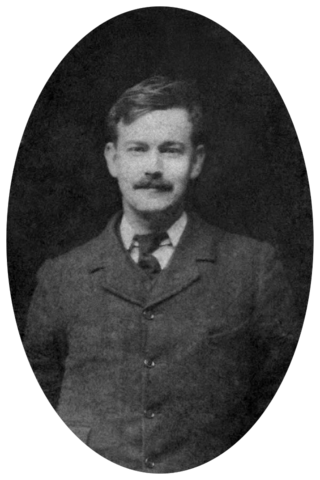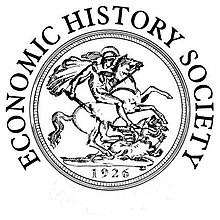
Richard Henry Tawney was an English economic historian, social critic, ethical socialist, Christian socialist, and important proponent of adult education. The Oxford Companion to British History (1997) explained that Tawney made a "significant impact" in these "interrelated roles". A. L. Rowse goes further by insisting that "Tawney exercised the widest influence of any historian of his time, politically, socially and, above all, educationally".
The American Council of Learned Societies (ACLS) is a private, nonprofit federation of 75 scholarly organizations in the humanities and related social sciences founded in 1919. It is best known for its fellowship competitions which provide a range of opportunities for scholars in the humanities and related social sciences at all career stages, from graduate students to distinguished professors to independent scholars, working with a number of disciplines and methodologies in the U.S. and abroad.

The United Nations Research Institute for Social Development (UNRISD) is "an autonomous research institute within the United Nations that undertakes multidisciplinary research and policy analysis on the social dimensions of contemporary development issues". UNRISD was established in 1963 with the mandate of conducting policy-relevant research on social development that is pertinent to the work of the United Nations Secretariat, regional commissions and specialized agencies, and national institutions.

The Social Science Research Council (SSRC) is a US-based, independent, international nonprofit organization dedicated to advancing research in the social sciences and related disciplines. Established in Manhattan in 1923, it maintains a headquarters in Brooklyn Heights with a staff of approximately 70, and small regional offices in other parts of the world.

The American Educational Research Association is a professional organization representing education researchers in the United States and around the world. AERA's mission is to advance knowledge about education and promote the use of research in educational practice.
The Pakistan Institute of Development Economics is a post-graduate research institute and a public policy think tank located in the vicinity of Islamabad, Pakistan.

Stanisław Głąbiński was a Polish politician, academic, lawyer and writer.

The Association for Slavic, East European, and Eurasian Studies (ASEEES) is a scholarly society "dedicated to advancing knowledge about Central Asia, the Caucasus, Russia, and Eastern Europe in regional and global contexts." The ASEEES supports teaching, research, and publication relating to the peoples and territories within this area.
The Society of Experimental Social Psychology (SESP) is a scientific organization of social scientists founded in 1965 with the goal of advancing and communicating theories in social psychology. Its first chairperson was Edwin P. Hollander. To expand the knowledge of social psychology, Edwin P. Hollander and his colleague Edgar Vinacke wrote 35 other social psychologists in the interest of a research-oriented social and personal psychology society. This focus was to develop a smaller group of research-oriented scientists with similar interests within the field of social psychology. The society meets annually for discussions that vary in topic. These topics usually include its membership, content of the society, and research interests among its members. To become a member, one must be a social psychologist, show evidence of contribution to social psychology, receive a nomination, and complete an application. SESP publishes the Journal of Experimental Social Psychology and Social Psychological and Personality Science.
The Economic History Association (EHA) was founded in 1940 to "encourage and promote teaching, research, and publication on every phase of economic history and to help preserve and administer materials for research in economic history". It publishes The Journal of Economic History with the Cambridge University Press, holds an annual meeting that usually takes place in September, and awards prizes and grants. It is also the home to the EH.Net Encyclopedia of Economic and Business History.
The Business History Conference (BHC) is an academic organization that supports all aspects of research, writing, and teaching about business history and about the environment in which businesses operate. Founded in 1954, the BHC supports ongoing research among its members and holds conferences to bring together business and economic historians. It also publishes a quarterly academic journal, Enterprise & Society, along with selected papers from its annual meetings via BEH On-Line.
The Society of Professional Economists is a British network of professional economists. Its members are drawn from all areas of the discipline including financial and professional services, business, journalism, government, consultancy, business schools and universities. Membership is open to anyone who has a degree with substantial economic content and/or works in an area of economic endeavour or investigation.
The Society for Historical Archaeology (SHA) is a professional organization of scholars concerned with the archaeology of the modern world. Founded in 1967, the SHA promotes scholarly research and the dissemination of knowledge pertaining to historical archaeology. The society is specifically interested in the identification, excavation, interpretation, and conservation of sites and materials on land and underwater. It is the largest such organization in the world and the third-largest anthropological organization in the United States.
Hans-Joachim Voth is a German economic historian. He joined the University of Zurich economics faculty in 2014 and has been the Scientific Director of the UBS Center for Economics in Society since 2017. In 2022, he was elected as a Fellow of the Econometric Society.
The Institute for Mediterranean Studies (IMS) (부산외국어대학교 지중해지역원) is an interdisciplinary institute that promotes, facilitates and publishes research in the field of Mediterranean Studies in South Korea. The IMS provides a center for holistic research and analysis of the Mediterranean Area, as well as academic teaching on the region. The IMS’s objectives are: fostering the establishment of Mediterranean Studies in the European and Middle-Eastern Research Areas, publishing scholarly literature on the Mediterranean, and establishing collaborative networks of researchers, academics and Mediterranean organizations across the world by organizing international conferences, seminars and ongoing global collaborations. With the beginning of the Humanities Korea (HK) project, IMS has concentrated on research with ICT experts in order for cultivation of advanced academic achievement in integrative field.
The European Business History Association (EBHA) is an academic association devoted to business history in Europe. It holds annual congresses and a bi-annual doctoral summer school. It is registered as a Scottish charity. Its constitution states its objectives as "to advance the education of the public concerning all aspects of the history of business and management in Europe and to promote research into all such aspects". Its aim is the organisation of conferences and seminars, the publication of a newsletter and other material girls, the encouragement of research in all aspects of business history, and specifically the promotion of collaborative projects based in several European countries such as The Performance of European Business in the 20th Century project per instance. The association was established to enhance inter-European contacts and promote extra-European links among business historians, to encourage the exchange of business history graduate students and to promote teaching and interest in all such aspects.
The Latin American and Caribbean Economic Association (LACEA) is an international association of economists with common research interests in Latin America. It was founded in July 1992, to encourage professional interaction and foster increased dialogue among researchers and practitioners whose work focuses on the economies of Latin America and the Caribbean. Since 1996, its Annual Meetings bring together scholars, practitioners and students to discuss research papers and listen to invited keynote speakers who present the latest academic findings in economic and social development issues. LACEA fosters several thematic research networks, publishes the academic journal Economia, and administers the digital repository LACER-LACEA.

The Julis-Rabinowitz Center for Public Policy and Finance (JRC) is a leading research center at the Princeton School of Public and International Affairs (SPIA) of Princeton University. Founded in 2011, the JRC primarily promotes research on public policy as it relates to financial markets and macroeconomics. The center has also expanded its research and teaching to multiple disciplines, including economics, operations research, political science, history, and ethics.
Deborah Oxley, is a Professor of Social Science History at the University of Oxford. Oxley's research focuses on the study of Australian convicts.
The International Economic History Association (IEHA) is an association of national, regional, and international organizations dedicated to the field of economic history, broadly defined. The IEHA includes 45 member organizations in 40 countries around the world. Headquartered in Utrecht, Netherlands, the IEHA promotes the study of and facilitates collaboration on a variety of projects, publications, and initiatives. While the IEHA has origins in European historiographies, it has since expanded its scope and membership to include economies and scholars outside of traditional areas of research.








